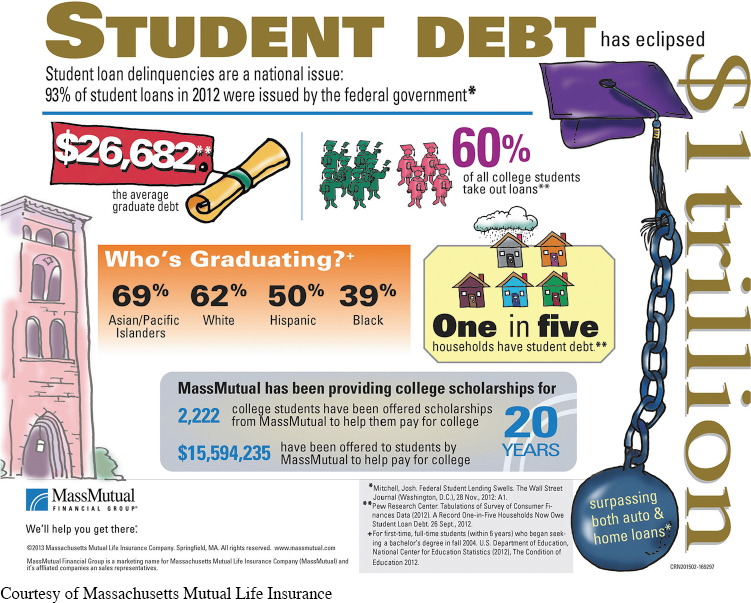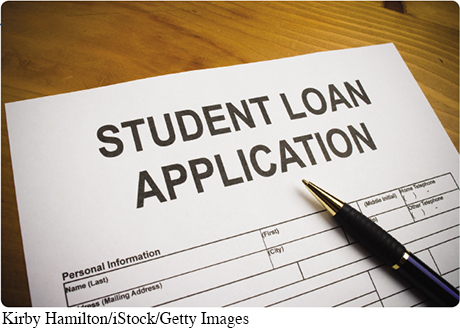AT ISSUE
Should the Government Do More to Relieve the Student-Loan Burden?
In 2011, the protest movement called Occupy Wall Street began in New York City’s Zuccotti Park. At first, the protestors’ focus was on issues such as social and economic inequality, high unemployment, and lack of affordable health care. As the movement spread, other issues came to the forefront, including a demand for student-loan forgiveness. Perhaps in response to the wide attention attracted by the protests, President Barack Obama announced a program of student-loan relief. Acknowledging that student debt was excessive—it exceeded $1 trillion in 2012—the president reduced the maximum required payment on student loans from 15 percent to 10 percent of a borrower’s annual income and instituted a policy of debt forgiveness after twenty years.
Currently, the student loan debt is over $1.2 trillion; needless to say, this is a cause for concern. According to some financial experts, student loans have created a financial bubble that will eventually burst and cause more damage than the housing bubble of 2008. Some critics point out that reforms to the current student-loan program do not address the root cause of the problem—the ever-increasing cost of tuition. (For example, in academic year 2014, in-state tuition at public four-year colleges rose 2.9 percent, and tuition and fees at private nonprofit four-year colleges rose 3.7 percent to $31,231 a year.) To address this problem, some critics have proposed a total restructuring of federal aid to colleges and universities, rewarding those schools that are able to reduce expenses and penalizing schools that are not. Those against government involvement in the student-loan program cite studies that suggest that most students receive enough financial aid to offset tuition; according to them, the situation is not as serious as activists would have us believe. Others say that students should not ask for debt forgiveness but should realize that like all borrowers, they have an obligation to live up to their end of the bargain and repay their loans.
Later in this chapter, you will be asked to think more about this issue. You will be given several sources to consider and asked to write a proposal argument that takes a position on whether the government should do more to relieve the student-loan burden.

